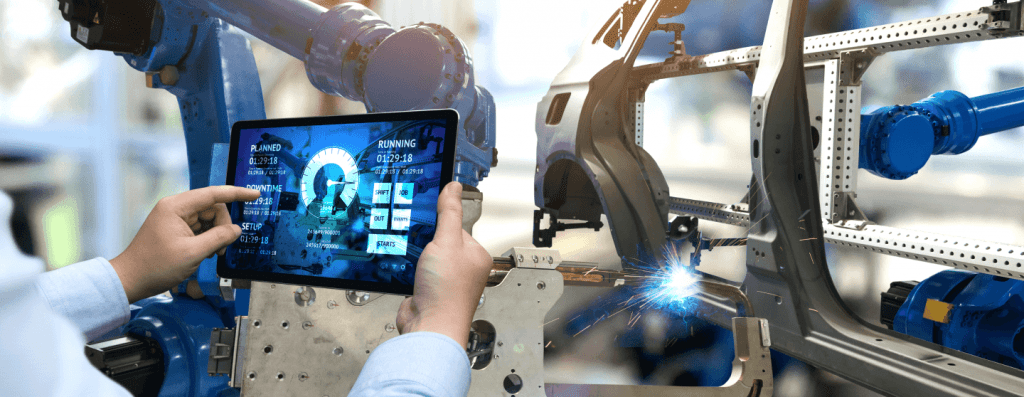How Does the Festive Season Affect Manufacturers?
Once again, the festive season is here; that time of the year when consumerism peaks. In festive fervor, people start redecorating their homes and splurging on everything from cars and home appliances to smartphones, food and beverages, clothes, and gifts.
An online survey confirmed that 48 % of consumers tend to shop more during the festive season than the rest of the year. [1]
Increased product demand causes manufacturers to feel the pressure of being at their productive best. What is most challenging is increasing productivity using existing resources. How do you optimize your capacity to meet production needs as cost-effectively as possible? They might even need to prioritize the production of particular items having greater demand to deliver on time.
The Economic Times reported that Realme, one of the biggest smartphone makers in India, has forecasted a 10% jump in consumer demand volume this festive season. [2]
These are crucial few months when manufacturing companies, their production planners, operators, and the plant workforce must be on their toes in perfect sync. Dynamic production scheduling becomes essential to get the manufacturing running at maximum efficiency. Manufacturers must ensure orders are processed and completed without interruption, delay, or stress on factory workers and other assets.
Can AI Help Manufacturers with Demand Fulfillment During Festive Times?
Companies are upbeat about the prospective boom in sales during the festive season, but there are some challenges the manufacturers have to overcome before they can start celebrating. Can Artificial Intelligence solve manufacturing problems in time to make work-life easier for the production team on the shop floor?
Dynamic AI scheduling provides new capabilities that optimize production efficiency and help manufacturers meet increased demand during the festive season. AI-powered synchronized manufacturing to balance resource availability and demand seems like the most ‘intelligent’ way forward.
Here Are the 5 Advantages of AI-based Flexible Scheduling for Demand Fulfillment
Our Bodhee Production Scheduler enables AI-based flexible scheduling, ensuring production goals are reached. Here are the additional capabilities it brings to your factory floor:
- On-time Delivery, Every Time
AI transforms manufacturing, freeing it from rigidity and helping the planner adjust parameters for event-driven rescheduling. The production team need not worry about unexpected asset downtime, manpower, or materials unavailability while order quantities escalate. AI-powered scheduling provides the flexibility to change the task-resource allocation in real time. Planners get an optimized schedule for mid-production modifications, and the production team can continue to work towards manufacturing products for on-time delivery.
- Improved Lead Time
The manual method of production scheduling using Excel is a time-consuming and labor-intensive process. Sometimes it could also take an entire day to create a production schedule according to the demand—planning the utilization of different raw materials, resources, and manpower for different products. Also, altering the plan to accommodate last-minute changes in demand could be complicated.
AI-based production scheduling simplifies the process. Integration of data is a fast and easy automated process. Dynamic AI recommends an optimized schedule improving the lead-time for responding to the product demand logged in.
- High Customer Satisfaction
Historical and LIVE production data gets integrated and harmonized for generating multiple What-if scenarios or predictive models that give greater visibility of possible outcomes. Planners can prioritize customers and reschedule manufacturing. Production of certain goods can be accelerated or increased according to the sales forecasts or orders placed. With the help of AI, resolving conflicting requests is just a quick drag-and-drop action.
Predictive & Prescriptive Analytics generates an optimized production schedule, helping you make data-based informed decisions. AI-powered production scheduling enables you to improve critical KPIs to meet production goals, ensuring high customer satisfaction.
- Efficient Resource Utilization
Predictive analytics provides accurate forecasting of man and material availability. AI-based scheduling enables the planner to manage multiple resource constraints flexibly. You can proactively link multiple tasks to the same resource or vice versa for appropriate utilization. Skill-based allocation of jobs to available manpower keeps the factory floor running efficiently.
Intuitive data visualization also helps understand the current status of the inventory. You can easily identify what raw materials are under-utilized or need stocking up to keep the production workflows efficient. Avoid bottlenecks or pending WIP with timely recommendations of an AI optimized schedule.
- Optimum Production Capacity Utilization
With AI-based dynamic scheduling, the production team has a bird’s eye view of the plant’s production capacity. Prescriptive analytics will help you proactively adjust the production plan as per machine availability. Actionable insights thus help planners define production and planning constraints to optimize machine capacity utilization. With AI/ML recommended optimal production schedules you can avoid waste of time and resources.
Optimum capacity utilization enables manufacturers to push for maximum output. And increased productivity ensures optimum demand satisfaction.
Implementing Bodhee Production Scheduler will enable manufacturers to respond to the seasonal market. AI-based dynamic scheduling helps you make informed decisions while adjusting production to meet forecasted demand.
Develop optimized production schedules for pumping up business and also enjoy the process.
# MoreProductivityGreatFestivity
Optimize with Bodhee Production Scheduler now!
References:
[1] Krishna, T. (2022, September 5). Festive season to drive consumer spending: 20% will shop more during 2022 festive season vs 2021, says Axis survey. Financialexpress. https://www.financialexpress.com/industry/festive-season-to-drive-consumer-spending-48-will-shop-more-during-2022-festive-season-vs-2021-says-axis-survey/2655710/
[2] Balakrishnan, P. (2022, September 26). Breezy start to ecommerce festive sales, 28% growth in first two days. The Economic Times. https://economictimes.indiatimes.com/tech/technology/online-festive-sales-excluding-smartphones-grow-28-in-first-two-days/articleshow/94439403.cms





